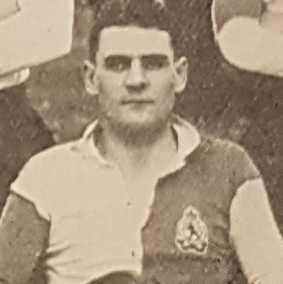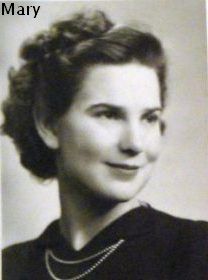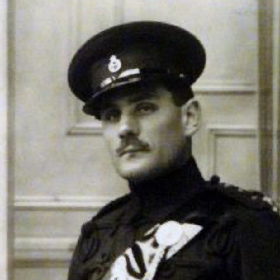View entry
Name: HUMFREY, Eric Bertram KPM, CPM



Birth Date: 11 Dec 1905 Maidenhead
Death Date: 1991 Bude
First Date: 1926
Last Date: 1932
Profession: Kenya Police (Source: Noel Morant).
Area: Gilgil
Married: 1. In Nicosia, Cyprus 1935 Diana Mary Gallagher b. 15 Aug 1914, d. 1944 (later m. Walter Patrick S. Lane 1905-1989); 2. In Kyrenia, Cyprus 10 Apr 1946 Mary Katherine Ridley b. 30 Sep 1919, d. 2005 Andover
Children: 1. son 2. one son; two dau.
Book Reference: Habari 23, Colonial, Dominion, Red 31, Hut, Barnes
School: Cranleigh School
General Information:
Dominion - Assistant Inspector of Police - 1930
Reminiscences 1926-32 - My appointment was fortuitous; towards the end of 1925 the Crown Agents offered me the Shanghai or the South African Police. Before I had time to decide they wrote saying there was a vacancy for a European Police Constable in Kenya. In the Maidenhead Library I read 'Kenya - Our Youngest Colony' and my mind was made up. I travelled out (2nd class) in the SS 'Matiana' and arrived at the Nairobi Railway Station from the coast covered in a thick red dust which had penetrated everywhere during an uncomfortable night in the train. I was given quarters in the Police Lines - old wood and corrugated iron buidlings opposite the Norfolk Hotel. As soon as the Indian tailor at the Depot had run me up a uniform I was posted to the Nairobi Police Station for a day or night patrol. (The Wolseley pattern helmet was issued in London - perhaps they thought I might get sunstroke on the way out.) By day we were preoccupied in checking Europeans who blatantly ignored the askaris on traffic duty, and by night our job was to prevent burglaries by arresting, on suspicion, Africans found lurking and those who were not carrrying a light, as required by the Municipal regulations. An Indian Sub-Inspector was always on duty in the Station, and an Inspector was on call to deal with complaints and occurrences of a serious nature. A not unusual 'occurrence' any time after midnight was when a panting, sweating rickshaw boy pulled up outside the Station and complained that his passengers would not say where they wanted to go but shouted only 'Kwenda, kwenda'. Lolling in the rickshaw would be two drunken, noisy Wazungu, in dinner jackets, who could not care less about anything.
The town itself was not very beautiful as it was criss-crossed by open drains and by Sanitary Lanes just wide enough for the Municipal Night Soil Carts (commonly known as 'Ngombe Wagons'). Moreover, double storied modern buildings were sandwiched between single storied Indian shops with tin roofs. The one and only cinema the Theatre Royal had seating arrangements which would not have appealed to any Race Relations Board. The Africans were allowed only in front, the Asians behind them and the Europeans in the boxes at the back. A pernicious system prevailing then (resulting in many bad debts) was the signing of 'chits' for everything. No-one needed to carry any money and whatever one bought, whether it was petrol, a drink in a bar or a pair of boots, one just signed a chit. Government officials were either 1st or 2nd class (according to the travel accommodation to which they were entitled) and I quickly discovered how terribly important the dividing line was between the two categories. Assistant Superintendents and Cadets (who were 1st Class) were expected on arrival in Nairobi to pay formal courtesy calls and leave visiting cards on senior Government officials and their wives and, of course, to sign the Government House book; they were also admitted as members to the Nairobi Club and the Muthaiga Country Club.
If any European Constable, who might well have been the product of a public school and university, had the effrontery to sign the Colonial Secretary's book, he would undoubtedly have been disciplined and probably shot! Depending on the personalities of the individuals concerned it could, and indeed did, cause some uneasiness and sometimes embarrassment on social occasions when, for instance, some inexperienced hostess put her foot in it by inviting both an Officer and a Constable to the same dinner party. In fact, when both were wearing dinner jackets it was not always easy for a stranger to tell one from the other.
Up country, of course, the farmers were not worried about social distinctions, but during my 2 years in Rumuruti I was never once invited to the house of the District Commissioner.
At the end of 1926 I was transferred to the Laikipia district where I much enjoyed life spending much of my time on safari with tent, porters, and pack donkeys; the Inspector in charge was married and content to stay in the township. Communications were lacking as there were no telephones or radios and the mail was delivered twice a week via Gilgil by means of a T Model Ford which was the only thing which could get through in the rainy season. Stock thefts and the removal of unlawful squatters from farms were the 2 things with which I was particularly concerned. I had animal transport provided - a horse, 2 South African mules and a buckboard, but the askaris had no means of transport at all except their flat feet - no boots.
The seniority of any Government Officer seen on safari in those days could be determined at a glance by the size of his tent. I was issued with a Boy Scout affair, an Inspector or anyone of similar status was entitled to a tent twice the size, and a Superintendent or District Commissioner had an even larger one with canvas verandah and an extension for a bath. On one occasion, when on patrol in the north, far from Rumuruti, I came across a herd of about 30 head of cattle being driven through the bush towards the Samburu Reserve. I reported the matter by a 'runner' and was told that pending enquiries they were not to be moved. Some days later I received a note saying that the cattle had been stolen from a farm on the slopes of the Aberdares about 70 miles away and that the Veterinary Department had ordered that, as they had passed through a rinderpest infected area, they were to be destroyed. For this long, difficult and distasteful task I used a .45 revolver and a .303 rifle. Vultures appeared almost immediately from every direction and that night there was much noise as scavengers fought over the carcases. It was on this safari that I had my 21st birthday.
On another occasion I went to see what was going on a little distance from the boma I was about to visit and found myself present at a female circumcision ceremony. No-one seemed at all embarrassed or surprised (if indeed they noticed me) and there was no interruption of the proceedings. However a quick look convinced me that it was not my scene and I withdrew, leaving them to continue what appeared to me to be a barbarous practice.
In 1928 I was moved to Gilgil and although the distances between farms were considerable I was still not entitled to a car allowance and spent much of my time on horseback. Later I bought an old box-body Chevrolet for £30 out of my own pocket. I have a rather interesting photograph of this car being hauled out of axle-deep mud on the Thomson's Falls - Nakuru Road by a team of 6 oxen which a Dutchman had brought to help me out. There were still a number of ox-wagons about at that time and they made enormous ruts into which a car could slither and stay put. Because there was no-one else to do it I was required to serve civil summonses for debt, definitely a non-police duty. The culprits, always Europeans, were usually hangers on who were difficult to find and who made a point of disappearing when I approached. The Gilgil - Thomson's Falls railway was then under construction and sometimes I accompanied the Engineer up the line on his trolley. This was a somewhat hazardous form of locomotion as a sharp look-out had to be kept for rhino on rounding every bend and interference with the newly laid line was a pastime for boys herding cattle.
On my return from home leave in 1929 I was posted to Nairobi again and life was good but very different. The Commissioner of Police was very keen on team games and the accent when off duty was on physical fitness and games. Members of the Force who were known to be good footballers, cricketers etc. were transferred from up country stations to Nairobi and it was not long before the Kenya Police could take on any team at rugger, soccer, cricket, boxing, polo and athletics. A snapshot taken in the Police Lines about 8.30 one Sunday morning showed some of the interests of the fellows in the Mess. Of the 6 characters in the picture 2 who were going to kick a ball about were wearing football togs, 1 in white flannels ready for a cricket match, 1 in riding breeches and boots, 1 in a dinner jacket (not having gone to bed) and 1 in pyjamas (not having got up). There was little scope for those interested in stepping out at night and the best that Nairobi could offer was the Theatre Royal Cinema and Torr's Hotel, where Sid Zeigler's Dance Band played nightly. About this time a settler whose farm was not paying had the bright idea of starting up a Hot Dog Stall on an open space behind the cinema. Every night from 11 pm onwards he and his wife cooked and dispensed sausages and bacon and eggs. Dozens of customers sat on up-turned petrol boxes in front of charcoal braziers and enjoyed the novelty of a late night al fresco supper.
In 1931-32 I had 3 temporary postings up-country to Lumbwa, which was then the District Headquarters; to Kitale and to Nyeri. The White Rhino and the Outspan were there, but no Treetops. Returning from the stint at Kitale I was able to hitch a lift on the engine of a goods train, the driver of which happened to be an expatriate, and from that excellent vantage point was able to appreciate the scenery on the way down to Nakuru. Passenger trains made stops at intervals for meals to be served by Goan stewards at Dak bungalows. Nearly all the Station Masters were Indians (as indeed were the sub-Inspectors of Police) and 2 of the many 'Babu' stories come to mind. On one occasion when Lord Delamere who had a large estate at Elmenteita decided to travel by rail to Nairobi the station master at Gilgil sent a signal down the line to his colleague at Naivasha: 'The Lord is on the Train'. Then in the very early days there was the Station Master who telegraphed Nakuru: 'surrounded by 50 hostile natives stop send rifle and 50 rounds of ammunition'. Those who have been there all the time have seen the Kenya scene change gradually but I find it difficult to visualise Nairobi and a modernised, mechanised police force as it is today.
At the end of 1932 I accepted albeit reluctantly the offer of a transfer to the Cyprus Military Police and sadly said 'Kwa Heri' to friends in and outside the Force. They were happy days and I look back on them with considerable nostalgia.
Colonial - Kenya Police 1926-32; Supt. of Police Cyprus 1933; Dep. Commissioner 1942
Barnes - Early player for Kenya Police Rugby Club - 1930s (as E.B. Humphrey)
